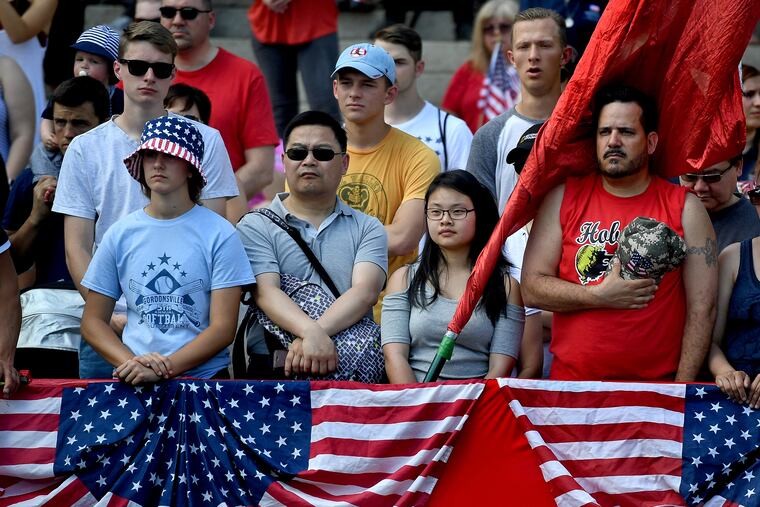The U.S. created a Memorial Day moment of silence. Here’s what to know.
The United States wants Americans to pause their Memorial Day grilling and pool splashing on Monday — it'll only take a moment.

The United States wants Americans to pause their Memorial Day grilling and pool splashing on Monday - it’ll only take a moment.
For the past two decades, the National Moment of Remembrance has been enshrined in law, formalizing 60 seconds of silence to commemorate fallen military members on a day widely seen as the unofficial start of summer.
Here's what to know about the moment within a holiday:
What is the National Moment of Remembrance?
The moment was created so Americans would pause their day-off festivities and solemnly remember why they aren't at work or school.
No matter where they are, Americans at 3 p.m. are to stop for one minute to reflect on the sacrifices that U.S. military members have made.
How did it start?
The notion of a National Moment of Remembrance came from a discussion with children, according to a White House website. A group was touring Lafayette Square in Washington in May 1996 when Carmella LaSpada asked its members what Memorial Day meant. At least one responded: "That's the day the pools open!"
The moment affected LaSpada, whose No Greater Love organization promoted its mission "to minister to families of America's war dead and victims of terrorism."
LaSpada wanted children to understand Memorial Day, according to a 2001 Washington Post report, so she came up with the idea for a national moment of reflection. She began her years-long quest by pleading with malls, chain stores, airports, retirement homes, restaurants, hotels and theme parks to make announcements. She gave them leaflets, fliers, videos and tape recordings of taps.
That promotion would lead LaSpada to Capitol Hill, where she found an ally.
» READ MORE: On Memorial Day, a reminder that fallen soldiers ‘all had stories’
In October 2000, Sen. Chuck Hagel (R-Neb.) proposed a bill that would "encourage citizens to dedicate themselves to the values and principles for which those heroes . . . died," his spokesman said later.
"The relevance of Memorial Day must be made more apparent to present and future generations of people of the United States through local and national observances and ongoing activities," the legislation said.
The National Moment of Remembrance Act became law in December 2000. Hagel would be come defense secretary in 2013, during the Obama administration. LaSpada would continue promoting veterans' issues.
The commemoration that she championed is now "a way we can all help put the memorial back in Memorial Day," LaSpada said, according to a Veterans Affairs publication.
Mike Coulter, a Hagel aide, told The Post in 2001 that the United States "has a responsibility to raise . . . respect for the national heritage," and that the National Moment of Remembrance was a good way to accomplish that goal.
The time, 3 p.m., was chosen because "it is a time of day when most Americans are likely making the most of the freedoms we enjoy," according to the White House website.
"This simple, brief reflection asks little compared with what we have asked of our servicemen and women," President Bill Clinton said of the measure in 2000, according to the American Presidency Project.
How is it commemorated?
At 3 p.m. on Memorial Day, Major League Baseball games will pause, Amtrak train whistles will blare, and buglers and trumpeters will sound the solemn notes of taps.
All MLB teams participating in workouts or games will recognize a moment of silence as part of a "unified expression of gratitude," the baseball organization said, with individual teams and umpiring crews determining how to observe the moment. All games played outside the 3 p.m. time slot will observe a brief moment of silence before the national anthem.
Train whistles will sound throughout the Amtrak system, which asked passengers to “join us in remembering and honoring the service and sacrifice of America’s armed forces.” Thousands of people will play the 24-note taps call that is sounded at military funerals and memorials, according to organizing group Taps Across America.